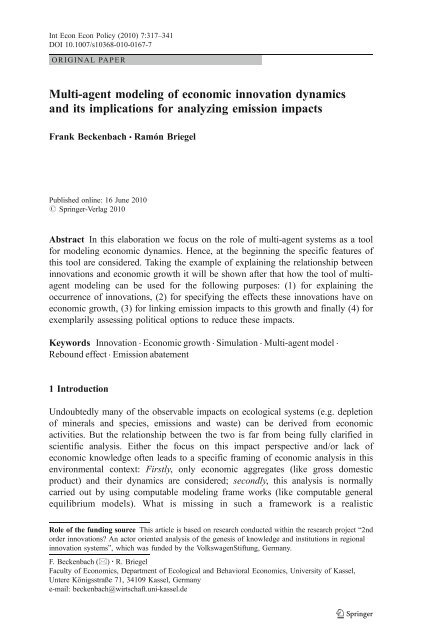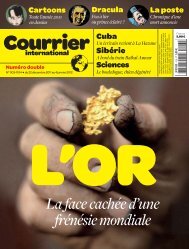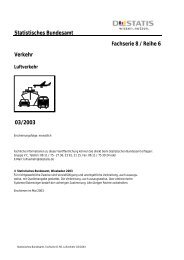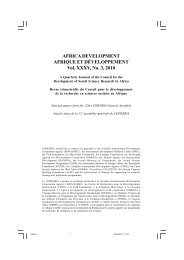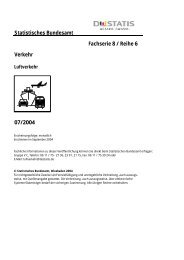The international economics of resources and resource ... - Index of
The international economics of resources and resource ... - Index of
The international economics of resources and resource ... - Index of
Create successful ePaper yourself
Turn your PDF publications into a flip-book with our unique Google optimized e-Paper software.
Int Econ Econ Policy (2010) 7:317–341<br />
DOI 10.1007/s10368-010-0167-7<br />
ORIGINAL PAPER<br />
Multi-agent modeling <strong>of</strong> economic innovation dynamics<br />
<strong>and</strong> its implications for analyzing emission impacts<br />
Frank Beckenbach & Ramón Briegel<br />
Published online: 16 June 2010<br />
# Springer-Verlag 2010<br />
Abstract In this elaboration we focus on the role <strong>of</strong> multi-agent systems as a tool<br />
for modeling economic dynamics. Hence, at the beginning the specific features <strong>of</strong><br />
this tool are considered. Taking the example <strong>of</strong> explaining the relationship between<br />
innovations <strong>and</strong> economic growth it will be shown after that how the tool <strong>of</strong> multiagent<br />
modeling can be used for the following purposes: (1) for explaining the<br />
occurrence <strong>of</strong> innovations, (2) for specifying the effects these innovations have on<br />
economic growth, (3) for linking emission impacts to this growth <strong>and</strong> finally (4) for<br />
exemplarily assessing political options to reduce these impacts.<br />
Keywords Innovation . Economic growth . Simulation . Multi-agent model .<br />
Rebound effect . Emission abatement<br />
1 Introduction<br />
Undoubtedly many <strong>of</strong> the observable impacts on ecological systems (e.g. depletion<br />
<strong>of</strong> minerals <strong>and</strong> species, emissions <strong>and</strong> waste) can be derived from economic<br />
activities. But the relationship between the two is far from being fully clarified in<br />
scientific analysis. Either the focus on this impact perspective <strong>and</strong>/or lack <strong>of</strong><br />
economic knowledge <strong>of</strong>ten leads to a specific framing <strong>of</strong> economic analysis in this<br />
environmental context: Firstly, only economic aggregates (like gross domestic<br />
product) <strong>and</strong> their dynamics are considered; secondly, this analysis is normally<br />
carried out by using computable modeling frame works (like computable general<br />
equilibrium models). What is missing in such a framework is a realistic<br />
Role <strong>of</strong> the funding source This article is based on research conducted within the research project “2nd<br />
order innovations? An actor oriented analysis <strong>of</strong> the genesis <strong>of</strong> knowledge <strong>and</strong> institutions in regional<br />
innovation systems”, which was funded by the VolkswagenStiftung, Germany.<br />
F. Beckenbach (*) : R. Briegel<br />
Faculty <strong>of</strong> Economics, Department <strong>of</strong> Ecological <strong>and</strong> Behavioral Economics, University <strong>of</strong> Kassel,<br />
Untere Königsstraße 71, 34109 Kassel, Germany<br />
e-mail: beckenbach@wirtschaft.uni-kassel.de


